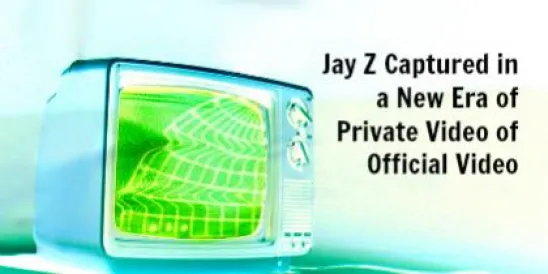Rapper Jay Z and his sister-in-law reminded us this week that, prior to revelations about NSA data collection efforts, it was the lives of the rich and famous that often sparked debate about privacy in our country. Surveillance video from a hotel elevator of the millionaire entertainment mogul being punched, slapped and kicked by his sister-in-law, Solange Knowles first appeared on the celebrity gossip website TMZ earlier this month. Pop music superstar Beyonce, Knowles’ sister and Jay Z’s wife, is also in the video along with a man believed to be Jay Z’s bodyguard.
What’s also in the video, and what has the legal industry abuzz, are a few green lines. Those green lines appear to be the borders separating several video feeds streaming on a single monitor. That detail and the unstable framing in the video make it obvious that this video, which has nearly two million views on YouTube, is actually a video of the surveillance video, likely recorded on a cellphone or other device. That brings up a great many legal questions.
“We are entering into an age of ubiquitous surveillance, not just with security cameras, but of personal pictures taken from security screens by hand-held smartphone/tablet cameras,” said Ted Claypoole, an attorney with Womble Carlyle who specializes in data management and tech-related privacy issues. “Now that everyone is carrying a camera, these personal tools can catch video and audio that are captured by security systems. No one is safe.”
Claypoole also noted that we are developing a culture of instant video gratification, where people expect interesting videos about celebrities and politicians to be posted online as soon as possible for consumption by the entire connected world. He feels that it is likely the person who took the now-famous Jay Z video was likely paid well for it.
The Standard hotel in New York City, where the fight occurred, told media last week it fired the employee who leaked the video to celebrity gossip website TMZ.



 />i
/>i

